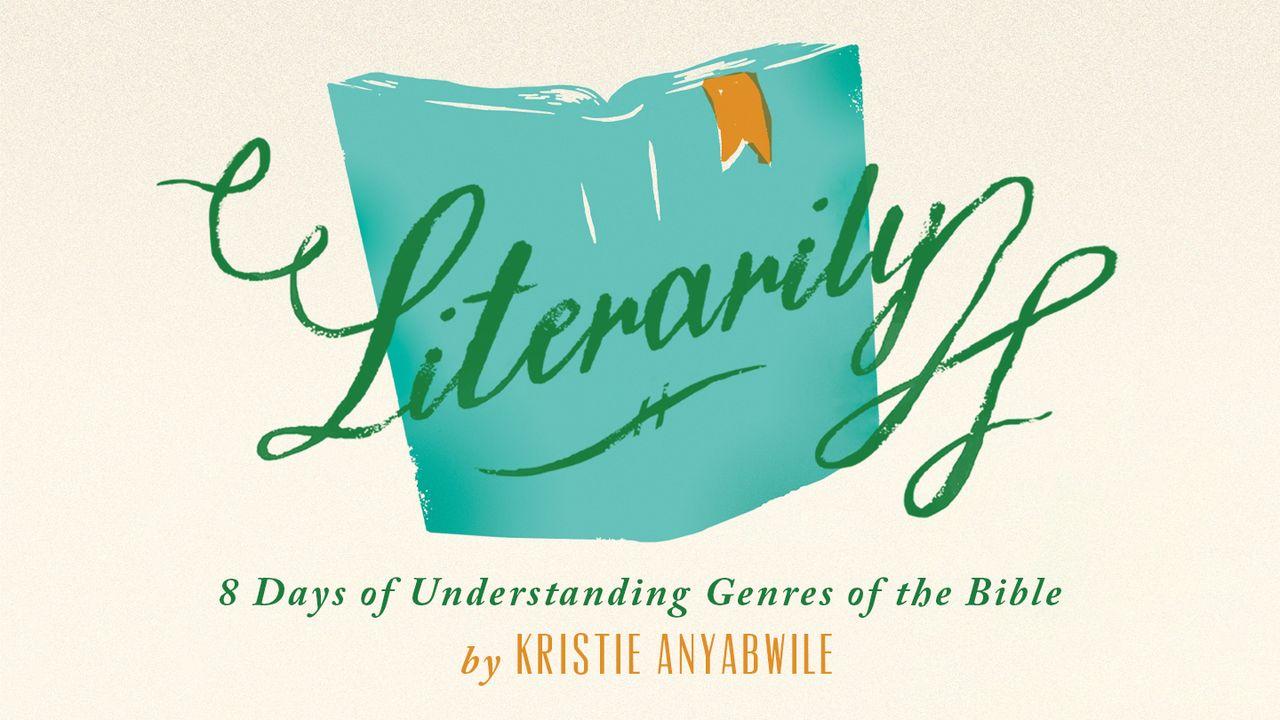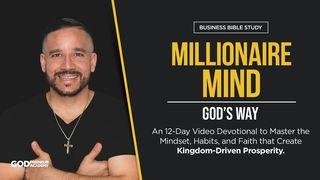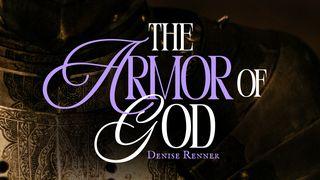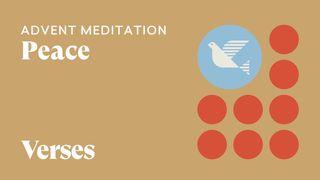Literarily: 8 Days of Understanding Genres of the Bible by Kristie AnyabwileSample

Wisdom
Scripture - Song of Solomon 4
Read today's passage of scripture before continuing to read this devotion.
What emotions does this passage invoke? What does this passage teach you about romantic relationships or marriage? In a few words, what is the groom celebrating in his bride? What does Christ celebrate in His bride, the church?
Wisdom literature includes the books of Job, Proverbs, Ecclesiastes, and Song of Solomon, which primarily contain verses and sayings that provide wisdom for living daily under God’s rule and care. Remember that the entire Bible is God’s inspired, authoritative Word for His people. All that exists comes from Him, including all wisdom. Out of God’s love and concern for all His creation, He gave us the wisdom to guide our lives in godliness, build our character, and strengthen our faith in Him.
The primary feature of wisdom literature is proverbs. Proverbs are short, memorable statements of truth, presented through the poetic form of parallelism, and often replete with metaphors and similes. Parallelism consists of a set of lines that are related to each other in some way. The second and subsequent lines repeat, contrast, compare, complete, or extend the thought of the first line. A metaphor compares two unrelated things by calling it something that it is not, but relating the two in a meaningful way. For example, “Your eyes are doves behind your veil” (Song of Solomon 4:1). A simile compares two unrelated things using the words like or as in the comparison. For example, “Your hair is like a flock of goats leaping down the slopes of Gilead”(Song of Solomon 4:1). Part of the difficulty in studying wisdom literature is how to apply its unrelenting, creative use of symbolic language to a contemporary context. If we don’t have the context of what the slopes of Gilead were like and if we can’t visualize a flock of goats leaping down them, that simile will not make much sense to our modern ears. It doesn’t sound like the most flattering statement. It reminds me of an old situation comedy that featured two teenagers head over heels for each other. The young man, Lance, would often try to impress his girlfriend Charmaine by complimenting her using highly figurative and in his mind, romantic terms. As he tested out new, flattering metaphors to impress his girlfriend, Charmaine would sweetly reply, “Oh Lance!”, while the rest of their friends and family stared at them in bewilderment, not understanding the meaning of the metaphor. This is not how it’s supposed to work with wisdom literature; it wasn’t meant to be confusing. All of Scripture was meant to be understood, believed, and appropriately applied in light of Christ’s redemptive work.
Scripture
About this Plan

In this eight-day study, you will learn about the major genres of Scripture - Law, Old Testament Narrative, Poetry, Wisdom, Prophecy, Gospels & Acts, Epistles, and Apocalyptic. We can deepen our understanding of God's Word by learning to study the Bible according to its literary genres. Whether you are new or seasoned in Bible study, this plan is intended to provide a framework for reading and understanding each genre.
More
We would like to thank Moody Publishers for providing this plan. For more information, please visit: https://www.moodypublishers.com/literarily
Related Plans

Daily Godpreneur: Millionaire Mind

Am I Really a Christian?

Written in Heaven: His Story, Our Lives

The Armor of God

Helping Your Kids Know God's Good Design

Advent Meditations: Peace

Bible App for Kids – Discover God’s Big Story

Happy to Work

God Is in Control
